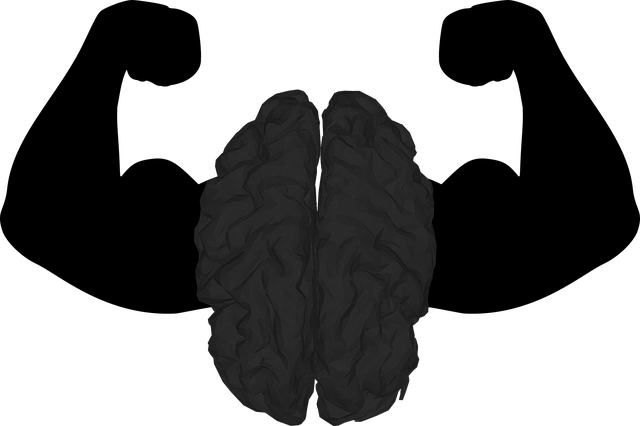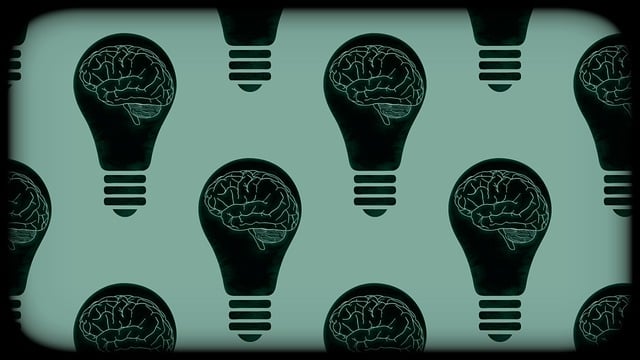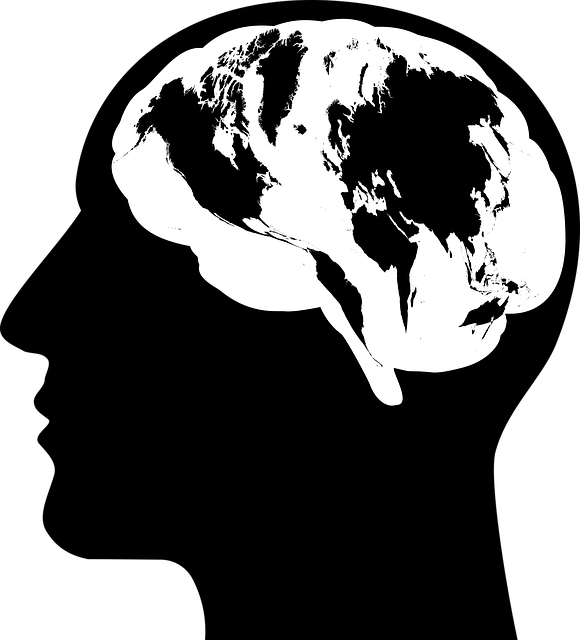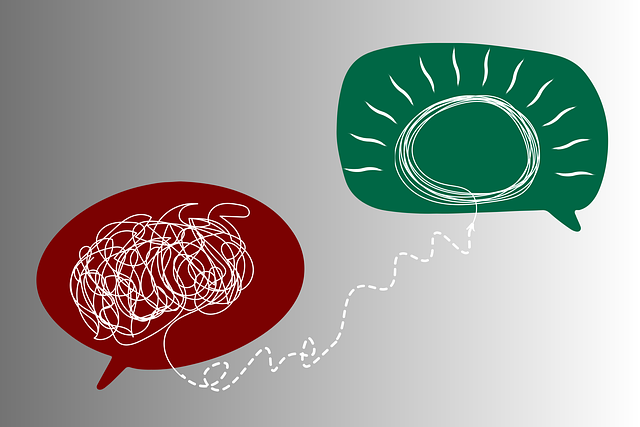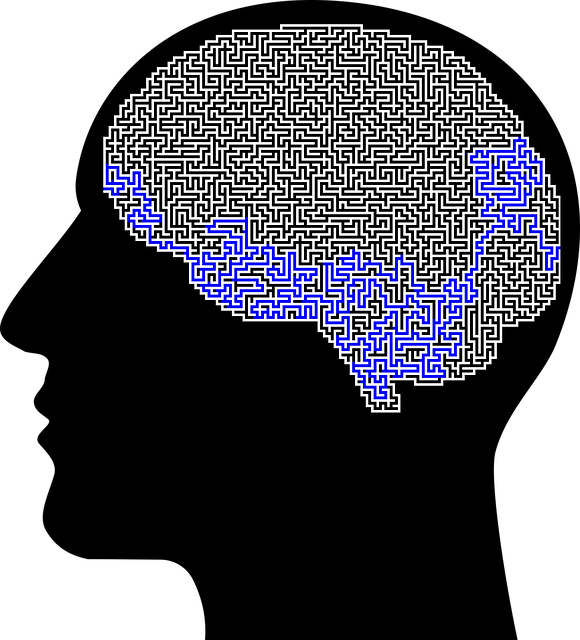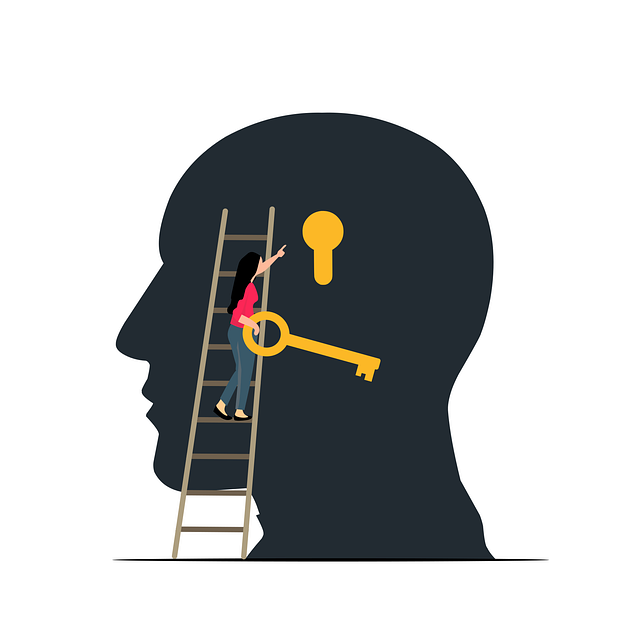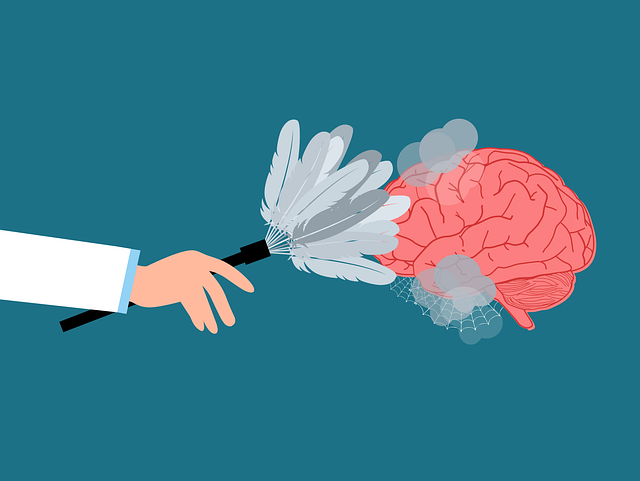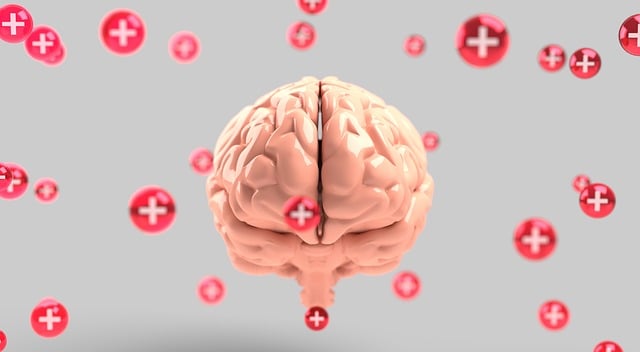In today's diverse society, effective mental healthcare requires cultural sensitivity, especially in settings like Lone Tree Domestic Violence Therapy where clients' complex interpersonal dynamics and traumatic experiences are deeply influenced by their cultural identities. A robust Mental Health Policy Analysis and Advocacy ensures accessibility for diverse communities. Training in cultural competency enhances therapists' connections with clients from various backgrounds, and culturally responsive Mental Wellness Coaching Programs empower individuals to preserve their cultural heritage while managing mental health. Challenges include biases and stereotypes; therapists must reflect on assumptions, undergo training, and learn about diverse cultures. In Lone Tree, Colorado, therapists integrate cultural sensitivity through understanding, adapting practices, fostering trust, and using culturally relevant coping skills, improving therapy quality and accessibility for all residents, particularly those dealing with domestic violence.
Mental healthcare practices must embrace cultural sensitivity to effectively support a diverse range of clients. In an increasingly globalized society, understanding cultural diversity is paramount within mental health contexts. This article explores this critical aspect, highlighting challenges and barriers while offering practical strategies for therapists. We showcase the successful implementation of Lone Tree Domestic Violence Therapy, demonstrating how culturally sensitive approaches can revolutionize care. By integrating these insights, mental health professionals can create inclusive environments, fostering better outcomes for all.
- Understanding Cultural Diversity in Mental Health Contexts
- Challenges and Barriers to Culturally Sensitive Practice
- Strategies for Integrating Cultural Sensitivity in Therapy
- Case Studies: Lone Tree Domestic Violence Therapy in Action
Understanding Cultural Diversity in Mental Health Contexts

In today’s diverse society, mental healthcare practices must embrace cultural sensitivity to provide effective treatment for all individuals. Understanding cultural diversity goes beyond recognizing different ethnic backgrounds; it involves appreciating the unique beliefs, values, and traditions that shape an individual’s experience of mental health and illness. This is especially crucial in contexts like Lone Tree Domestic Violence Therapy, where clients may face complex interpersonal dynamics and traumatic experiences influenced by their cultural identities.
A thorough Mental Health Policy Analysis and Advocacy is essential to ensure that services are accessible and tailored to diverse communities. Building empathy through training in cultural competency and employing Empathy Building Strategies can help therapists connect with clients from different backgrounds. Moreover, developing Mental Wellness Coaching Programs that incorporate culturally responsive practices can empower individuals to navigate their mental health journeys while respecting and preserving their cultural heritage.
Challenges and Barriers to Culturally Sensitive Practice

Challenges and Barriers to Culturally Sensitive Practice
One of the primary challenges in providing culturally sensitive mental healthcare is overcoming inherent biases and stereotypes that professionals may hold about different cultural groups. These biases can lead to misperceptions, misinterpretations, and ultimately, ineffective treatment approaches. For instance, a therapist might unconsciously apply universal therapeutic techniques without considering the unique cultural context and values of their client, potentially causing resentment or resistance. Addressing these biases requires ongoing self-reflection, cultural competence training, and a commitment to continuous learning about diverse cultures and communities.
Another significant barrier is communication. Language differences and variations in nonverbal cues can create misunderstandings between therapists and clients from different cultural backgrounds. Therapists must be adept at using clear, culturally appropriate language and actively listening for nuances that may be lost in translation. This might involve utilizing interpreters or learning basic phrases in the client’s native language. Additionally, therapists should be mindful of their own emotional intelligence and cultural humility to ensure they create a safe and supportive environment where clients feel comfortable sharing personal experiences and beliefs.
Strategies for Integrating Cultural Sensitivity in Therapy

Strategies for Integrating Cultural Sensitivity in Therapy
One of the most powerful tools therapists can employ is cultural sensitivity, which involves understanding and appreciating the diverse backgrounds, beliefs, and values of their clients. In Lone Tree, Colorado, where a community is as diverse as it is beautiful, this becomes especially critical. Therapists must be prepared to adapt their practices to meet the unique needs of individuals from various ethnic, racial, religious, and cultural groups. This approach not only enhances therapeutic outcomes but also fosters trust and respect between therapist and client.
To integrate cultural sensitivity effectively, therapists can engage in ongoing professional development, including cultural competence training, to learn about different cultures and communities. They should actively listen to clients’ stories and experiences, validate their perspectives, and avoid making assumptions based on stereotypes or limited knowledge. Additionally, therapists can utilize coping skills development techniques tailored to address cultural considerations, ensuring that interventions are relevant and respectful. Risk management planning also plays a crucial role; professionals must be aware of potential cultural triggers and have strategies in place to navigate them sensitively. By embracing these practices, mental health professionals can provide culturally sensitive care, ultimately improving the quality and accessibility of therapy for all residents of Lone Tree.
Case Studies: Lone Tree Domestic Violence Therapy in Action

Lone Tree Domestic Violence Therapy offers a powerful example of culturally sensitive mental healthcare. By understanding and addressing the unique challenges faced by communities affected by domestic violence, this therapeutic approach fosters a safe and supportive environment. Case studies reveal that tailoring interventions to specific cultural contexts can significantly enhance the effectiveness of treatment. For instance, incorporating traditional healing practices alongside Western psychotherapy allows clients from diverse backgrounds to connect with their therapists on deeper levels, promoting better engagement and outcomes.
This tailored approach not only improves mental wellness but also underscores the importance of Public Awareness Campaigns Development in breaking down barriers to care. By raising awareness about cultural sensitivity in therapy, Lone Tree Domestic Violence Therapy contributes to a growing movement that empowers individuals to seek help without fear or hesitation. Moreover, such initiatives build confidence boosting strategies within marginalized communities, encouraging them to prioritize their mental health and well-being.
In navigating complex mental health scenarios, especially within diverse communities, cultural sensitivity emerges as a pivotal aspect of effective therapy. As evidenced by the case studies, including Lone Tree Domestic Violence Therapy, integrating cultural awareness into practice yields profound positive outcomes. Overcoming challenges such as language barriers and misunderstandings requires a nuanced approach, where therapists foster an inclusive environment. By embracing strategies like cultural competency training, adaptation of therapeutic techniques, and community collaboration, mental healthcare professionals can ensure that services are accessible and tailored to diverse populations’ unique needs, ultimately enhancing the healing process.
